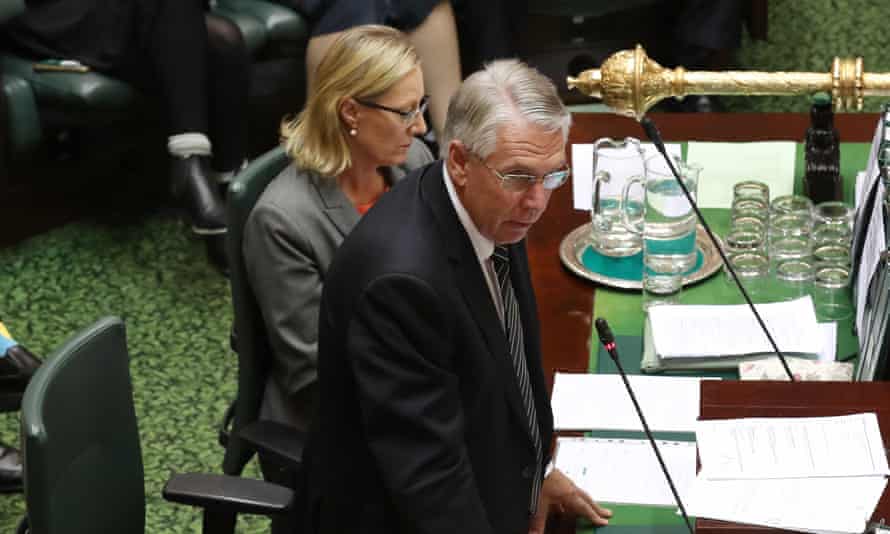State
leader criticises senator Bridget McKenzie for failing to represent her
state division’s formal support of net zero carbon emissions target.
Victorian National party leader Peter Walsh criticised Bridget McKenzie’s position on net zero emissions after disaffiliating from the federal Nationals.
Last modified on Tue 6 Jul 2021 03.31 AEST
The Victorian Nationals will push for a bolder position on climate change at the party’s next federal council, while exploring the “ramifications” of cutting ties with the federal party in protest at the return of Barnaby Joyce as leader.
The party’s state leader, Peter Walsh, who moved a motion at a party board meeting last Thursday to disaffiliate the state branch from the federal Nationals, has also criticised Victorian senator Bridget McKenzie for being at odds with her state division’s formal support of a net zero carbon emissions target.
“Our federal division has a different stance to what two Victorian Nationals conferences have in the way of climate,” Walsh told Guardian Australia.
“The Victorian senator [McKenzie] has probably been espousing the northern Australia position more so than the position of the state conferences of her home state.”
McKenzie, a key backer of Joyce, has been a strident critic of a net zero emissions policy, warning against “blindly following international pressures driven by other countries’ domestic politics and advantage.”
The Nationals in Victoria have reacted angrily to the resurrection of Joyce as leader, raising concerns about the party’s climate change position under the returned leader, as well as his decision to dump Victorian Darren Chester from cabinet.
The party’s state deputy leader, Steph Ryan, said she believed Joyce’s standing among women should have ruled him out of a return to the top job.
At the state party’s conference earlier this year, members supported the move towards net zero emissions, voting to “welcome moves by agricultural industries to achieve net zero emissions and put in place policies to support farmers to achieve this goal.”
Chester, who was dumped from cabinet for standing by former leader Michael McCormack in last month’s leadership spill, wrote in the Herald Sun last week that there was a “fight for the future in The Nationals … between 1950 and 2050” with the party’s climate policy crucial to the next generation of voters.
Nationals sources say that last week’s motion to disaffiliate the state division from the federal party, driven by differences over climate policy, may have been successful if put to a vote, but a second procedural motion to have the proposal “laid on the table” was successful. This means the motion has yet to be formally voted on, and the consequences of disaffiliation will now be further explored.
On Friday, a state council move to “congratulate” Joyce on his elevation to leadership also split the membership, with some party members voting against the motion.
Walsh told Guardian Australia that the Victorian branch would continue to advocate for a more ambitious climate change policy, with the state division expected to take a formal motion to the next federal council meeting next year if the party’s position did not advance.

“If you read the business pages of the major papers, the corporate world is making investment decisions with hundreds of billions of dollars involved and they are moving ahead [on climate change] without a government policy or a government framework,” Walsh said.
“Those business decision would be better informed if there was a government policy and framework.”
Walsh said there had been a “significant policy difference” between the state Nationals and the federal branch on emissions policy, and he hoped to have a “constructive” discussion with Joyce about the issue.
The Victorian leader spoke with Joyce following the bid to disaffiliate, describing it as a “very frank” discussion in which both leaders agreed on the need to find some common ground.
No comments:
Post a Comment